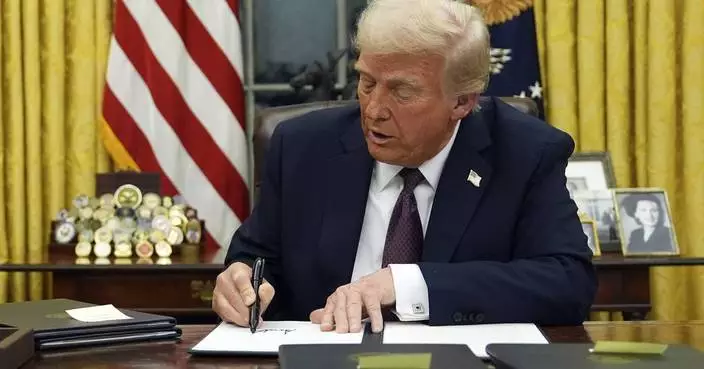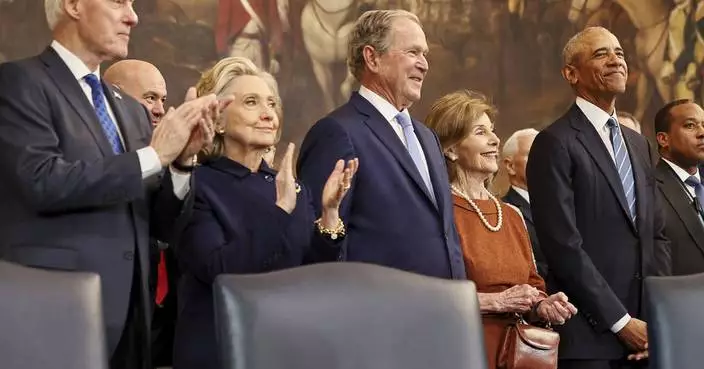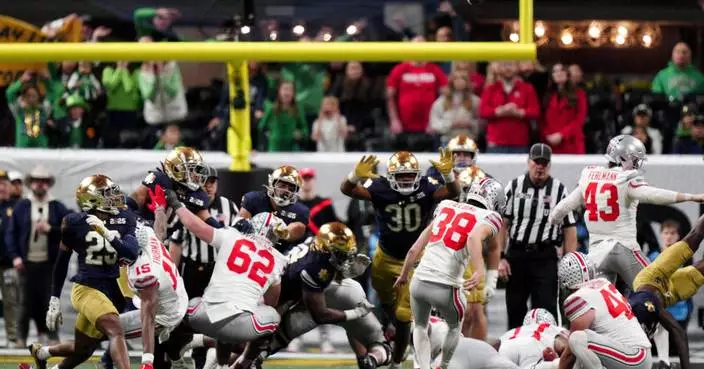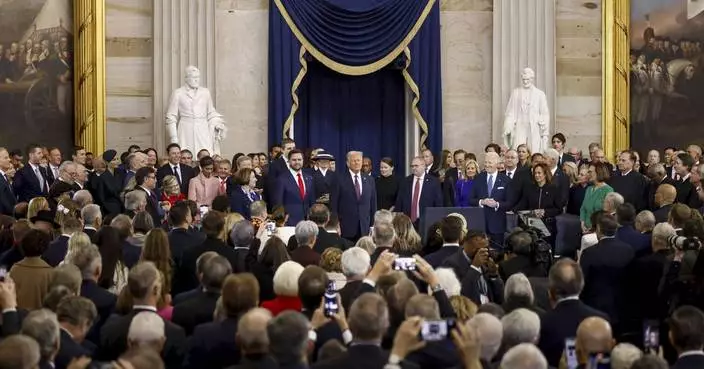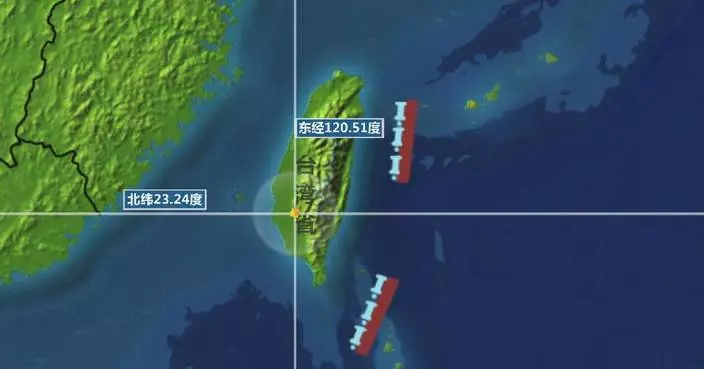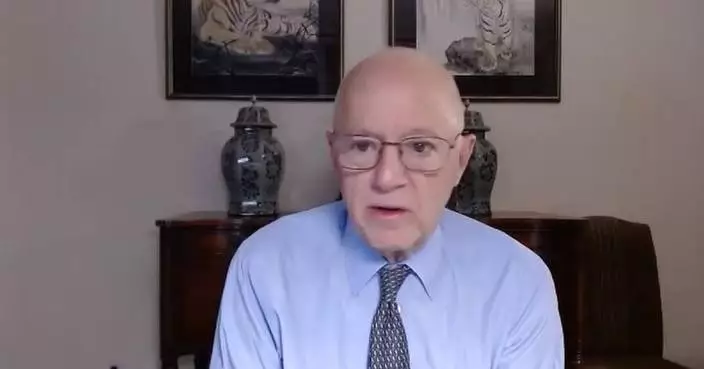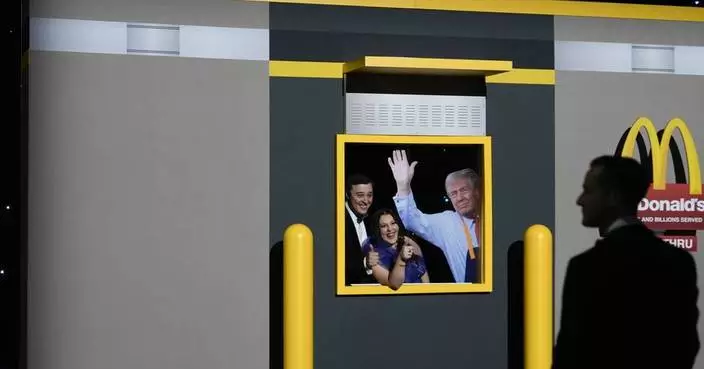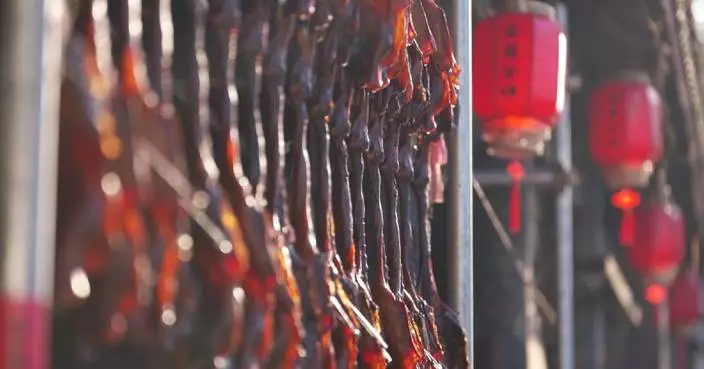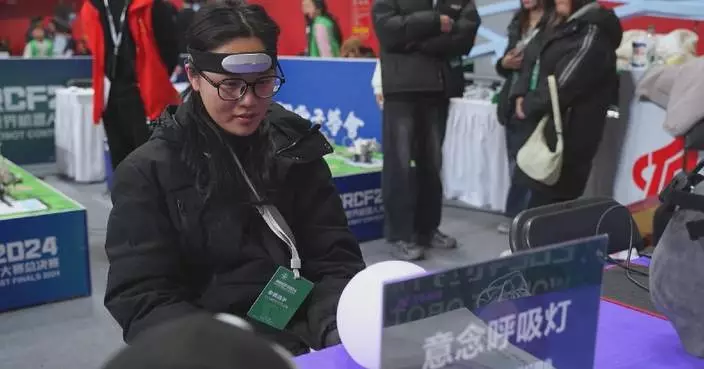BOSTON (AP) — Boston Red Sox outfielder Jarren Duran apologized for directing a homophobic slur at a heckling fan during Sunday's 10-2 loss to the Houston Astros.
The exchange caught on a live mic during the broadcast of the game occurred when Duran — who was 0 for 2 with two strikeouts at that point in the game — was at the plate in the sixth inning.
A fan at Fenway Park can be heard shouting “Tennis racket! Tennis racket! You need a tennis racket!”
Duran turned his head toward the fan and replied: “Shut up,” followed by a curse word and the slur. The at-bat ended with Duran being walked.
“During tonight’s game, I used a truly horrific word when responding to a fan," Duran said in a statement released by the team. “I feel awful knowing how many people I offended and disappointed. I apologize to the entire Red Sox organization, but more importantly to the entire LGBTQ community. Our young fans are supposed to be able to look up to me as a role model, but tonight I fell far short of that responsibility.”
He finished by saying he would use the episode to educate himself and grow as a person.
The team in a statement said it has spoken with Duran about the incident.
“The Red Sox addressed this incident with Jarren immediately following today’s game. We echo Jarren’s apology to our fans, especially to the LGBTQ community,” the team said. "We strive to be an organization that welcomes all fans to Fenway Park, and we will continue to educate our employees, players, coaches and staff on the importance of inclusivity.”
Duran is one of Boston's top hitters this season with a .291 average, 14 home runs and 58 RBIs.
The exchange with the fan came after Duran was honored during a pregame ceremony as the team's recipient of the Heart and Hustle Award, which recognizes one player per team who “demonstrates a passion for the game and best embodies its values, spirit, and traditions.”
AP MLB: https://apnews.com/hub/mlb
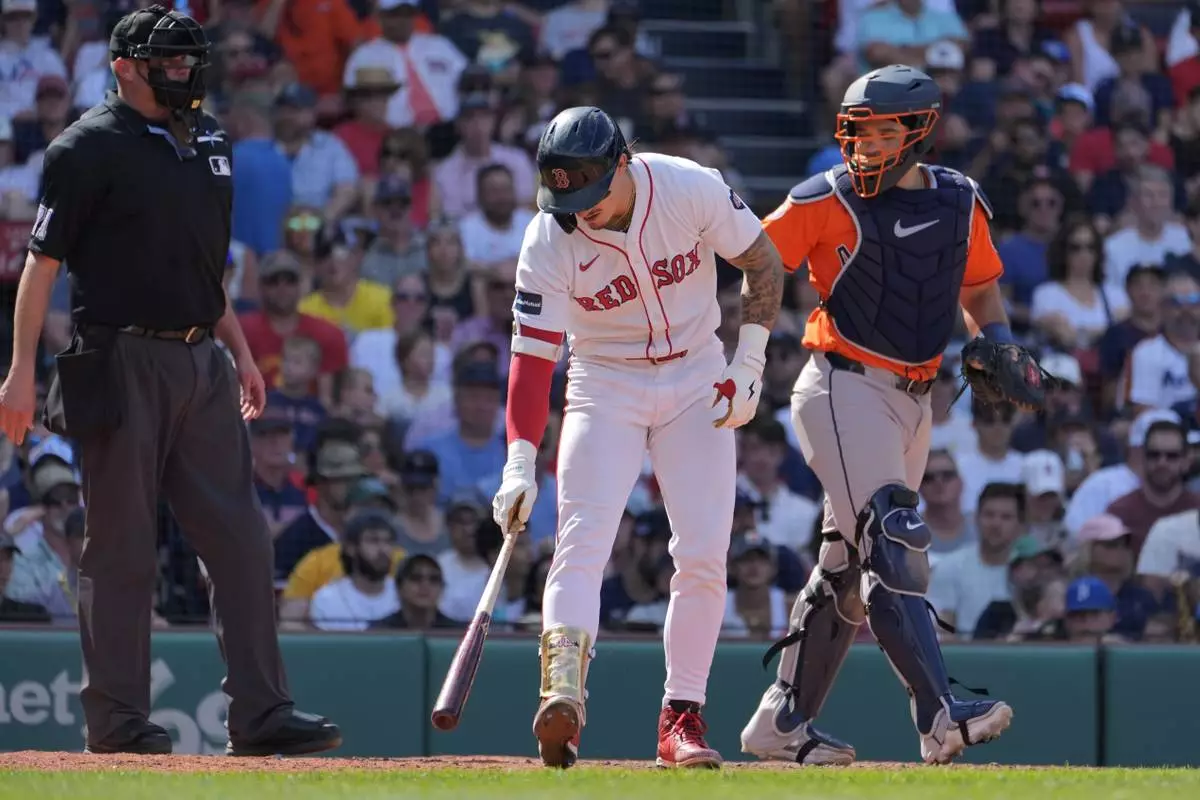
Boston Red Sox's Jarren Duran puts his bat down beside Houston Astros catcher Yainer Diaz after taking a walk during the sixth inning of a baseball game, Sunday, Aug. 11, 2024, in Boston. (AP Photo/Michael Dwyer)

Boston Red Sox's Jarren Duran reacts after striking out during the third inning of a baseball game against the Houston Astros, Saturday, Aug. 10, 2024, in Boston. (AP Photo/Mark Stockwell)
President Donald Trump moved to end a decades-old immigration policy known as birthright citizenship when he ordered the cancellation of the constitutional guarantee that U.S.-born children are citizens regardless of their parents’ status.
Trump's roughly 700-word executive order, issued late Monday, amounts to a fulfillment of something he's talked about during the presidential campaign. But whether it succeeds is far from certain as attorneys general in 18 states and two cities challenged the order in court on Tuesday, seeking to block the president.
Here's a closer look at birthright citizenship, Trump's executive order and reaction to it:
Birthright citizenship means anyone born in the U.S. is a citizen, regardless of their parents' immigration status. People, for instance, in the United States on a tourist or other visa or in the country illegally can become the parents of a citizen if their child is born here.
It's been in place for decades and enshrined in the 14th Amendment to the Constitution, supporters say. But Trump and allies dispute the reading of the amendment and say there need to be tougher standards on becoming a citizen.
The order questions that the 14th Amendment extends citizenship automatically to anyone born in the United States.
The 14th Amendment was born in the aftermath of the Civil War and ratified in 1868. It says: “All persons born or naturalized in the United States and subject to the jurisdiction thereof, are citizens of the United States and of the State wherein they reside.”
Trump's order excludes the following people from automatic citizenship: those whose mothers were not legally in the United States and whose fathers were not U.S. citizens or lawful permanent residents; people whose mothers were in the country legally but on a temporary basis and whose fathers were not citizens or legal permanent residents.
It goes on to bar federal agencies from recognizing the citizenship of people in those categories. It takes effect 30 days from Tuesday, on Feb. 19.
The 14th Amendment did not always guarantee birthright citizenship to all U.S.-born people. Congress did not authorize citizenship for all Native Americans born in the United States, for instance, until 1924.
In 1898 an important birthright citizenship case unfolded in the U.S. Supreme Court. The court held that Wong Kim Ark, who was born in San Francisco to Chinese immigrants, was a U.S. citizen because he was born in the country. After a trip abroad, he had faced denied reentry by the federal government on the grounds that he wasn't a citizen under the Chinese Exclusion Act.
But some advocates of immigration restrictions have argued that while the case clearly applied to children born to parents who are both legal immigrants, it’s less clear whether it applies to children born to parents without legal status.
Eighteen states, plus the District of Columbia and San Francisco sued in federal court to block Trump's order.
New Jersey Democratic Attorney General Matt Platkin said Tuesday the president cannot undo a right written into the Constitution with a stroke of his pen.
“Presidents have broad power but they are not kings,” Platkin said.
Not long after Trump signed the order, immigrant rights groups filed suit to stop it.
Chapters of the American Civil Liberties Union in New Hampshire, Maine and Massachusetts along with other immigrant rights advocates filed a suit in New Hampshire federal court.
The suit asks the court to find the order to be unconstitutional. It highlights the case of a woman identified as “Carmen," who is pregnant but is not a citizen. The lawsuit says she has lived in the United States for more than 15 years and has a pending visa application that could lead to permanent status. She has no other immigration status, and the father of her expected child has no immigration status either, the suit says.
“Stripping children of the ‘priceless treasure’ of citizenship is a grave injury,” the suit said. "It denies them the full membership in U.S. society to which they are entitled."
In addition to New Jersey and the two cities, California, Massachusetts, Colorado, Connecticut, Delaware, Hawaii, Maine, Maryland, Michigan, Minnesota, Nevada, New Mexico, New York, North Carolina, Rhode Island, Vermont, and Wisconsin joined the lawsuit to stop the order.
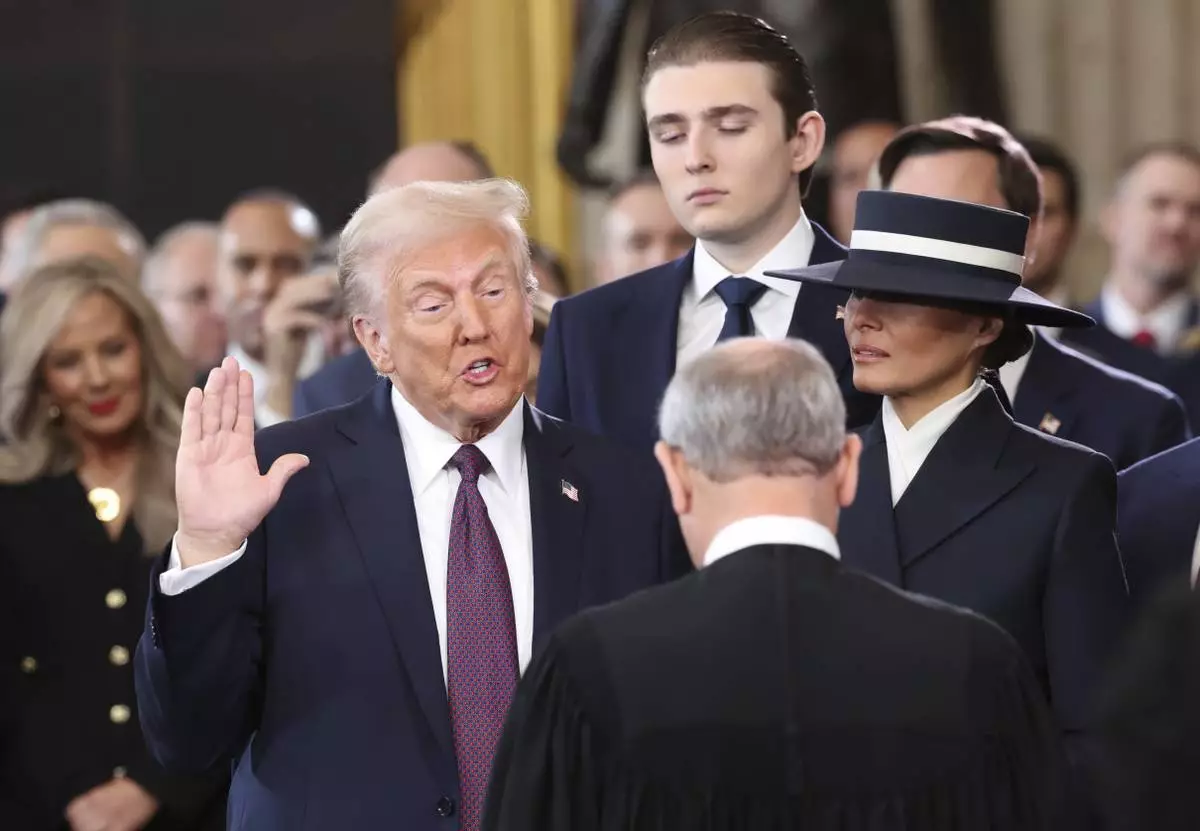
President-elect Donald Trump, from left, takes the oath of office as Barron Trump and Melania Trump watch at the 60th Presidential Inauguration in the Rotunda of the U.S. Capitol in Washington, Monday, Jan. 20, 2025. (Kevin Lamarque/Pool Photo via AP)
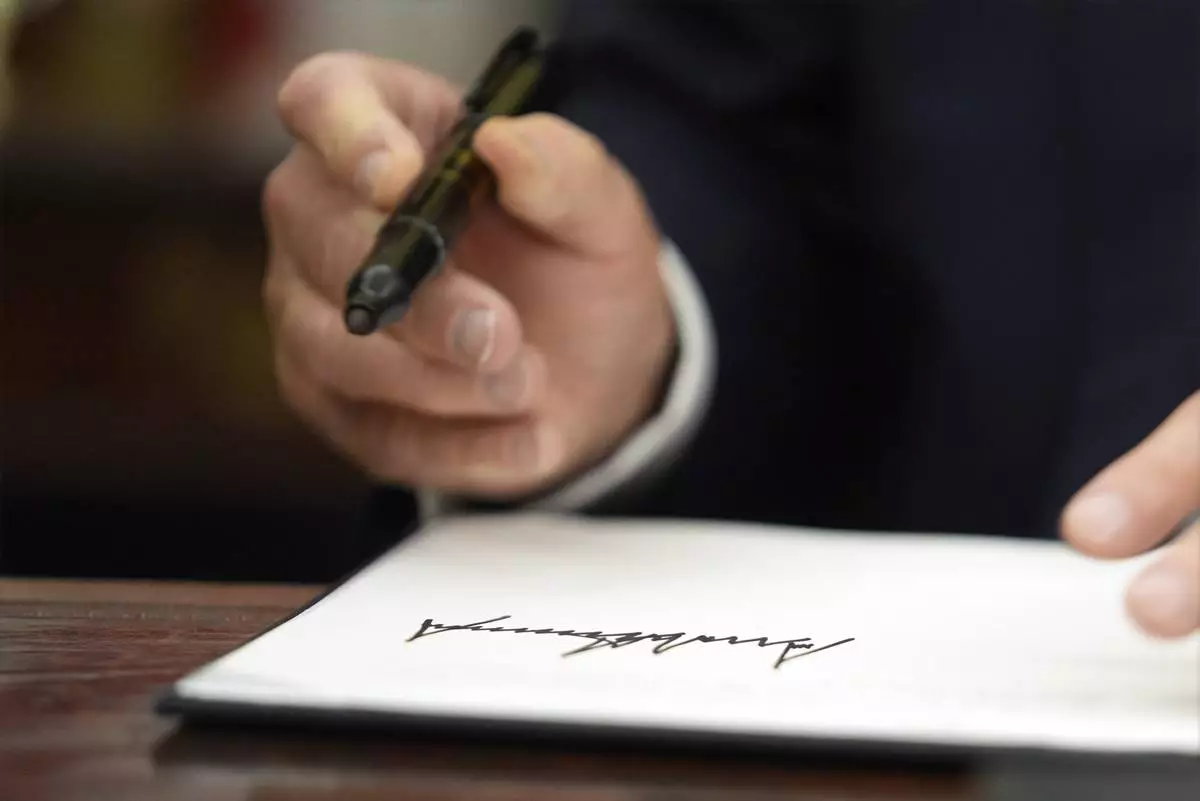
President Donald Trump signs executive orders in the Oval Office of the White House, Monday, Jan. 20, 2025, in Washington. (AP Photo/Evan Vucci)
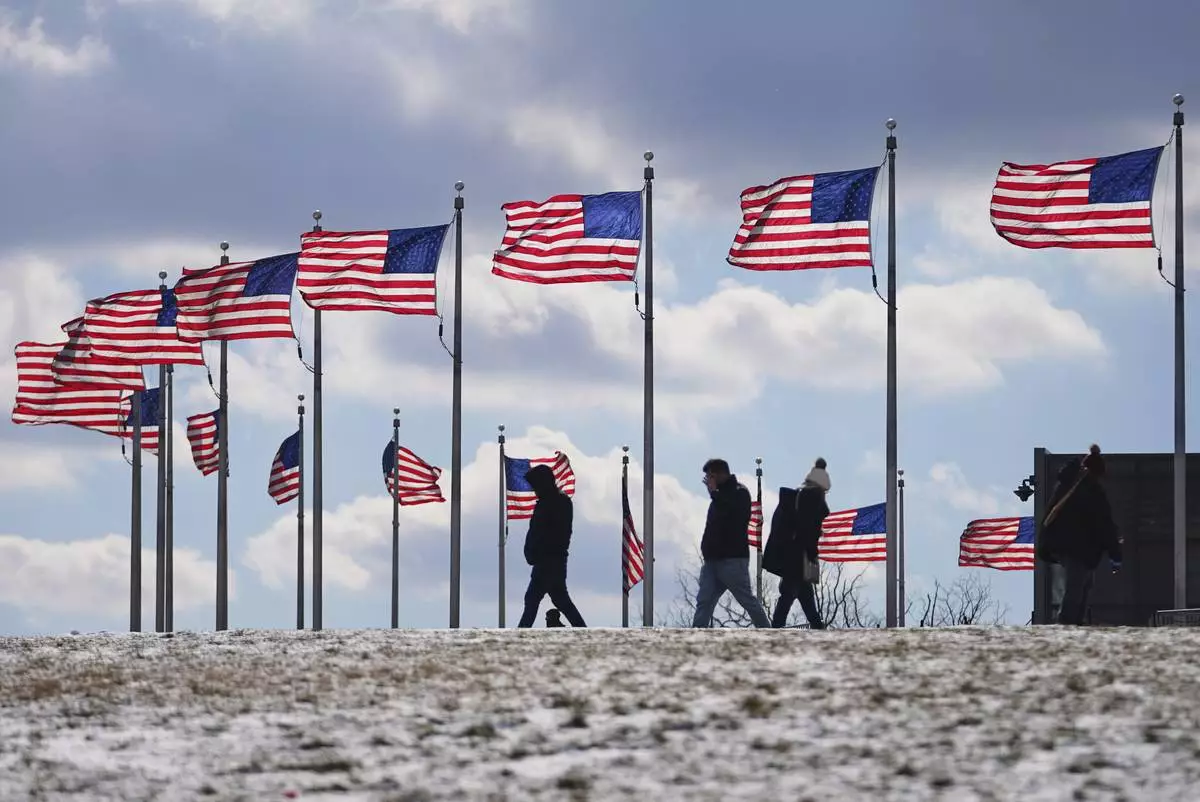
U.S. flags around the Washington Monument are at full staff during the 60th Presidential Inauguration, Monday, Jan. 20, 2025, in Washington. Flags are supposed to fly at half-staff through the end of January out of respect for former President Jimmy Carter, who died Dec. 29, 2024. (AP Photo/Julio Cortez)
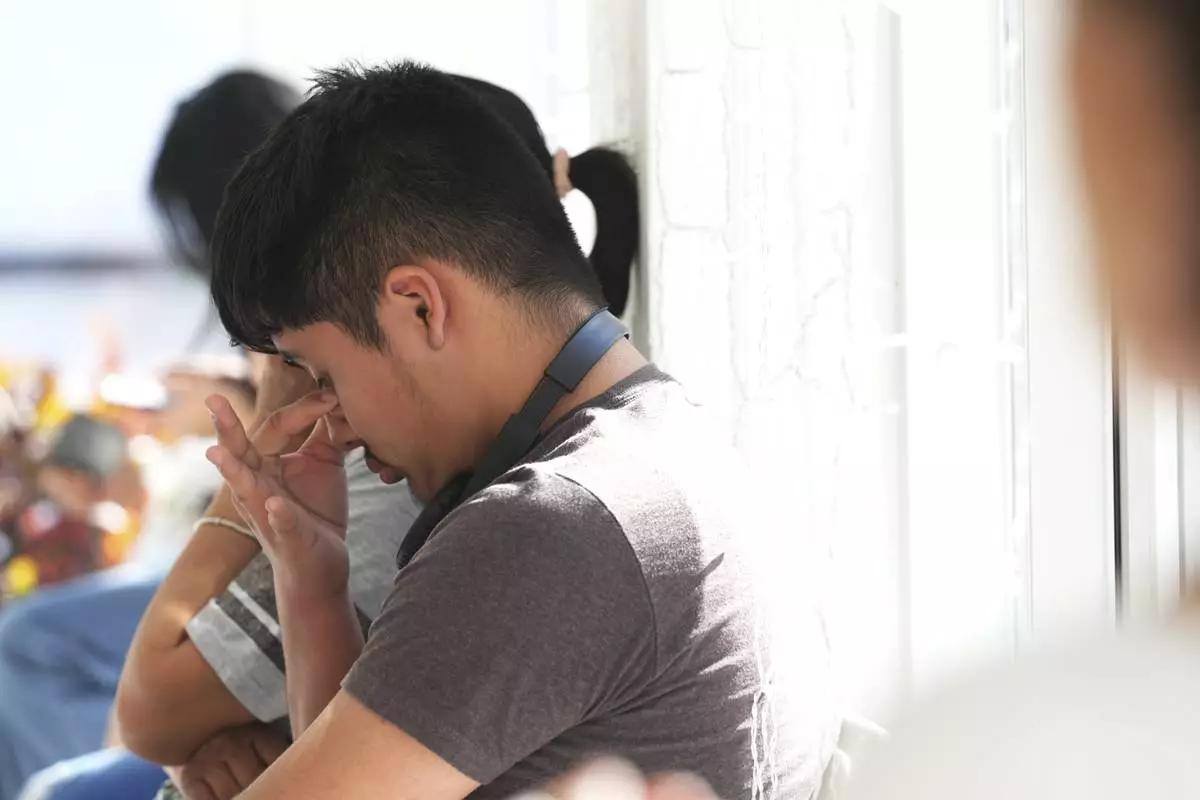
A young man reacts to information on how to prepare for the upcoming changes to undocumented families living in the U.S., Sunday, Jan. 19, 2025, in Miami. (AP Photo/Marta Lavandier)
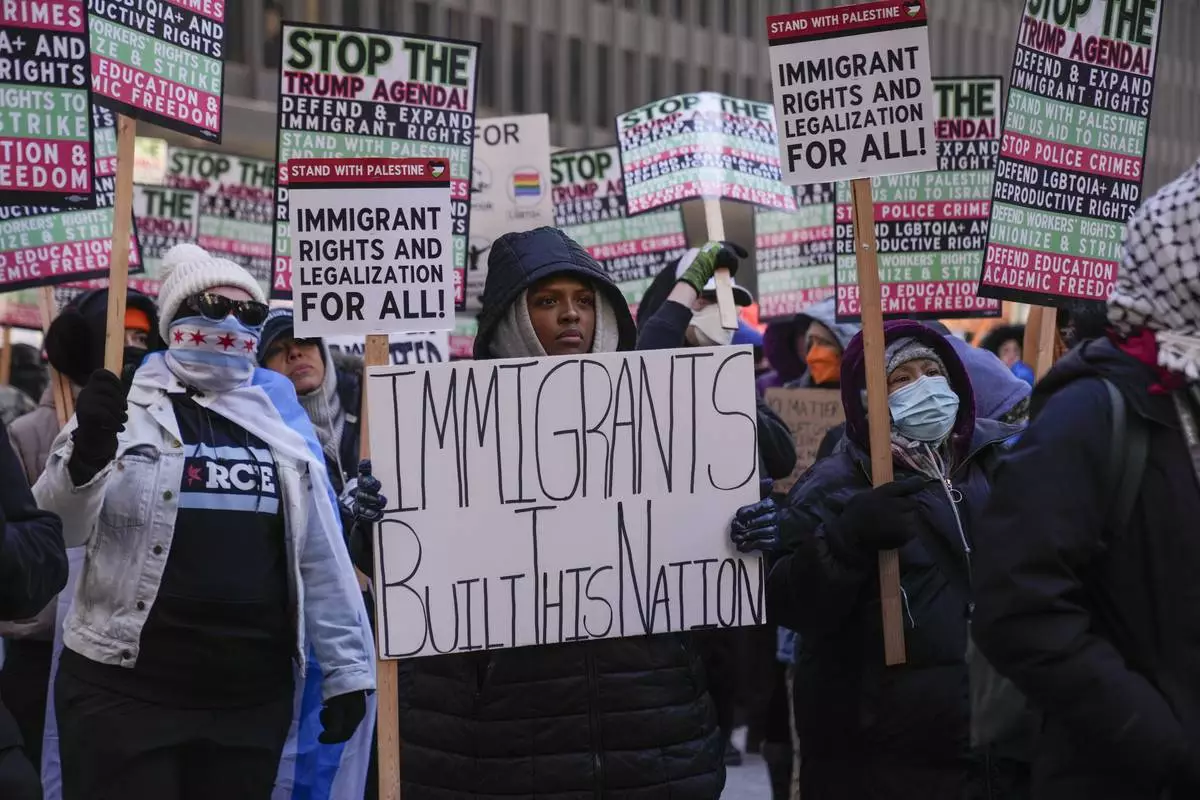
Sonia Rosa Sifore and other anti-Trump protesters gather in Federal Plaza to rally for a number of issues, including immigrant rights, the Israel-Hamas war, women's reproductive rights, racial equality and others, on the day of President Trump's Inauguration, Monday, Jan. 20, 2025, in Chicago. (AP Photo/Erin Hooley)
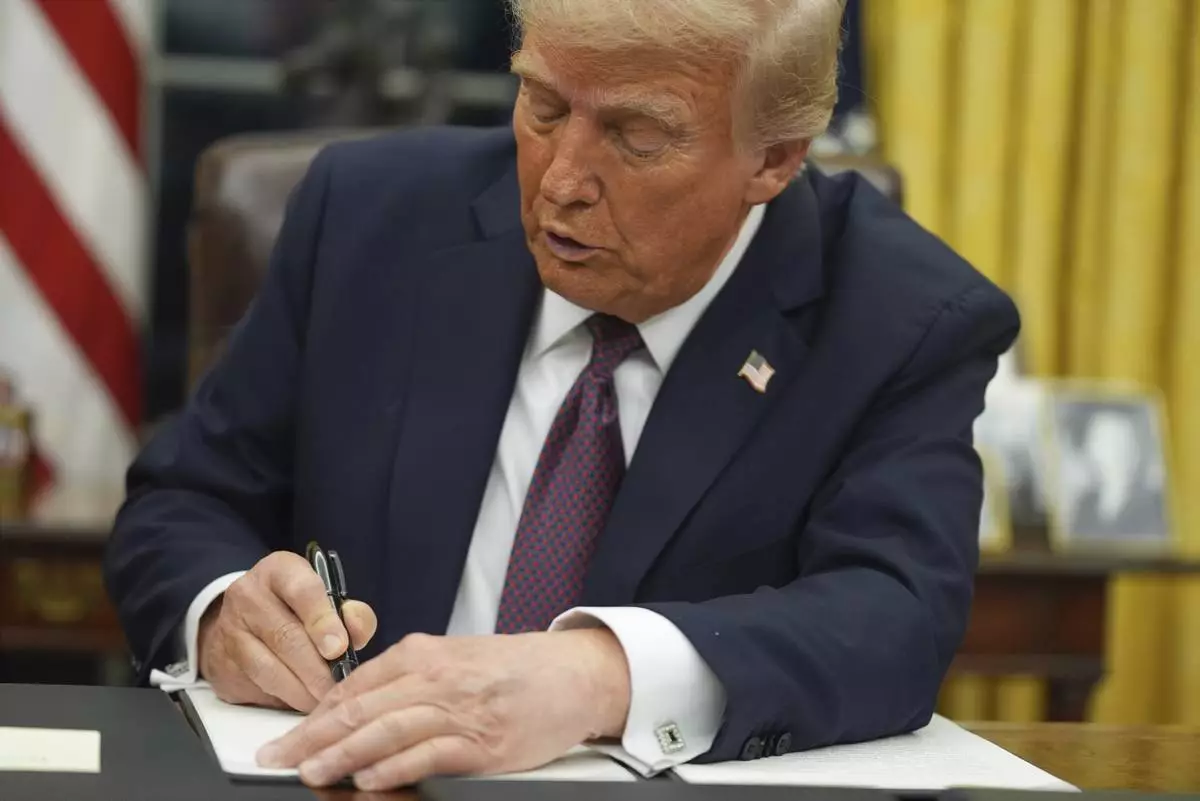
President Donald Trump signs an executive order on birthright citizenship in the Oval Office of the White House, Monday, Jan. 20, 2025, in Washington. (AP Photo/Evan Vucci)












